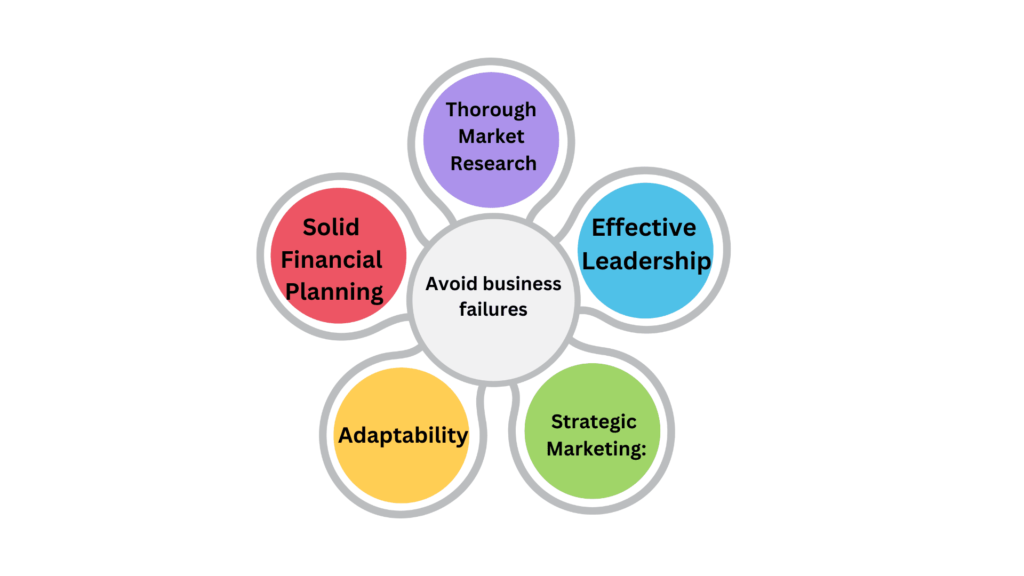The dream of starting a small business is the pursuit of countless individuals with entrepreneurial aspirations. However, the harsh reality is that a significant percentage of these ventures end in failure. Understanding the primary causes of small business failure and learning how to navigate these challenges is crucial for aspiring entrepreneurs. In this comprehensive guide, we will delve into the three major causes of small business failure, the success and failure factors, and effective strategies for avoiding the pitfalls that lead to downfall.
Percentage of Small Businesses that Fail:
The statistics surrounding small business failure rates are sobering. Research indicates that approximately 20% of new businesses fail within their first year, and the numbers increase dramatically over the next few years. Within five years, about 50% of small businesses have closed their doors, and by the ten-year mark, this percentage reaches a staggering 70%. These numbers may be intimidating, but they highlight the importance of understanding the underlying causes that contribute to these failures.


Most Businesses Fail Within:
The initial years of a small business are often the most challenging. A considerable number of failures occur within the first 1-3 years of operation. This critical period is marked by intense competition, unpredictable market shifts, financial instability, and the steep learning curve that new entrepreneurs face.
Reasons Why New Businesses Fail:


Insufficient Market Research: A lack of understanding of the target market’s needs and preferences can lead to the development of products or services that don’t resonate with customers. This results in low demand and poor sales.
Inadequate Financial Planning: Poor financial management, including overspending, underestimating expenses, and failing to secure adequate funding, can quickly drain a small business’s resources.
Mismanagement and Ineffective Leadership: Ineffective leadership and management practices can lead to poor decision-making, lack of direction, and internal conflicts, ultimately affecting the business’s overall performance.
Start-Up Business Failure Rate:
Start-ups are particularly susceptible to failure due to the challenges inherent in establishing a brand-new business. Factors such as limited resources, lack of brand recognition, and untested business models contribute to their higher failure rate compared to more established enterprises.
Avoiding the Pitfalls of Small Business Failure:
While small business failure is a harsh reality, it’s not an inevitability. Entrepreneurs can take proactive steps to mitigate risks and increase their chances of success:
Thorough Market Research: Conduct in-depth market research to identify customer needs, preferences, and competitors. This information can guide product development and positioning.
Solid Financial Planning: Develop a comprehensive financial plan that includes realistic revenue projections, expense estimates, and a contingency fund to weather unexpected challenges.
Effective Leadership: Cultivate strong leadership skills and foster a positive organizational culture that promotes open communication, teamwork, and adaptability.
Adaptability: Stay nimble and open to change. Monitor market trends, customer feedback, and emerging technologies to pivot your business strategies as needed.
Strategic Marketing: Develop a robust marketing strategy that encompasses both online and offline channels. Establish a strong online presence through social media, content marketing, and search engine optimization (SEO) to reach a wider audience.
How Mismanagement Can Be a Cause for Small Business Failure:
Mismanagement can manifest in various forms, including poor decision-making, lack of communication, and a failure to adapt to changing market conditions. This can lead to:
Inefficient Operations: Ineffective processes, lack of organization, and improper resource allocation can hinder productivity and profitability.
Financial Instability: Mismanagement of finances, including poor budgeting and overspending, can lead to cash flow problems and debt accumulation.
Low Employee Morale: Poor leadership and communication can result in a demotivated workforce, affecting employee performance and customer service.
List and Describe the Success and Failure Factors for Small Business:
Success Factors:
Clear Value Proposition: Successful businesses offer products or services that address a genuine need and provide unique value to customers.
Effective Marketing: Strategic marketing efforts help build brand awareness, attract customers, and create a loyal customer base.
Strong Leadership: Capable leadership guides the business with a clear vision, effective decision-making, and the ability to inspire and lead a team.
Financial Management: Prudent financial planning, budgeting, and efficient resource allocation ensure the business’s stability and growth.
Adaptability: Businesses that can quickly adapt to market changes, technological advancements, and customer preferences are better positioned for success.
Failure Factors:


Lack of Market Understanding: Failing to grasp the target market’s needs and wants can lead to irrelevant products and services.
Inadequate Planning: Poor strategic planning, financial forecasting, and risk assessment can set the business up for failure.
Weak Leadership: Ineffective leadership, poor communication, and a lack of direction can lead to internal conflicts and organizational chaos.
Financial Mismanagement: Mishandling finances, excessive debt, and poor cash flow management can lead to insurmountable financial challenges.
Resistance to Change: Businesses that are unwilling to evolve with changing market dynamics can quickly become obsolete.
In conclusion, while small business failure is a common phenomenon, understanding its root causes and implementing effective strategies can significantly improve the chances of success. Entrepreneurs who conduct thorough market research, practice solid financial planning, foster effective leadership, and remain adaptable are better positioned to overcome the challenges that lead to failure. By learning from both success and failure factors, aspiring business owners can chart a more informed and prosperous entrepreneurial journey.
